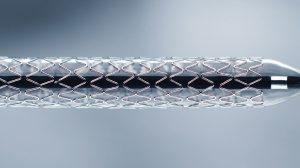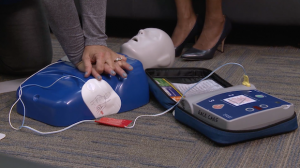NEW YORK (Reuters Health) – Alcohol septal ablation, an increasingly popular non-surgical treatment for obstructive hypertrophic cardiomyopathy (HCM), does not appear to induce ventricular arrhythmias, new research suggests.
Although alcohol septal ablation has been shown to be an effective treatment for symptomatic HCM, there have been concerns that the scar created by the procedure may have a pro-arrhythmic effect. No large studies have examined whether alcohol septal ablation for HCM increases the risk of life-threatening arrhythmias or sudden death.
The present study, reported in the Journal of the American College of Cardiology for November 18, featured 123 consecutive patients with HCM who underwent alcohol septal ablation and also received an implantable cardioverter defibrillator to prevent sudden cardiac death.
During a mean follow-up period of 2.9 years, nine appropriate defibrillator shocks were recorded, lead author Dr. Frank A. Cuoco, from the Medical University of South Carolina in Charleston, and colleagues note. On average, the subjects had 1.5 risk factors for sudden cardiac death. No significant differences in risk factors for sudden cardiac death were seen between patients who did and those who did not receive appropriate shocks.
The estimated annual rate of appropriate ICD discharges was 2.8% over 3 years, the authors note. This rate, they add, is low and actually below that reported in HCM patients not treated with alcohol septal ablation who have received an implantable cardioverter defibrillator.
The results suggest that alcohol septal ablation is not pro-arrhythmic and may actually help prevent ventricular tachycardia/fibrillation by relieving outflow tract obstruction and enhancing reverse modeling, the researchers state.
“Although scar-mediated re-entry can occur after iatrogenic infarct, it seems to be a rare complication of this procedure and more than offset by the beneficial effects of remodeling in the long term.”
Reference:
J Am Coll Cardiol 2008;52:1718-1723.




